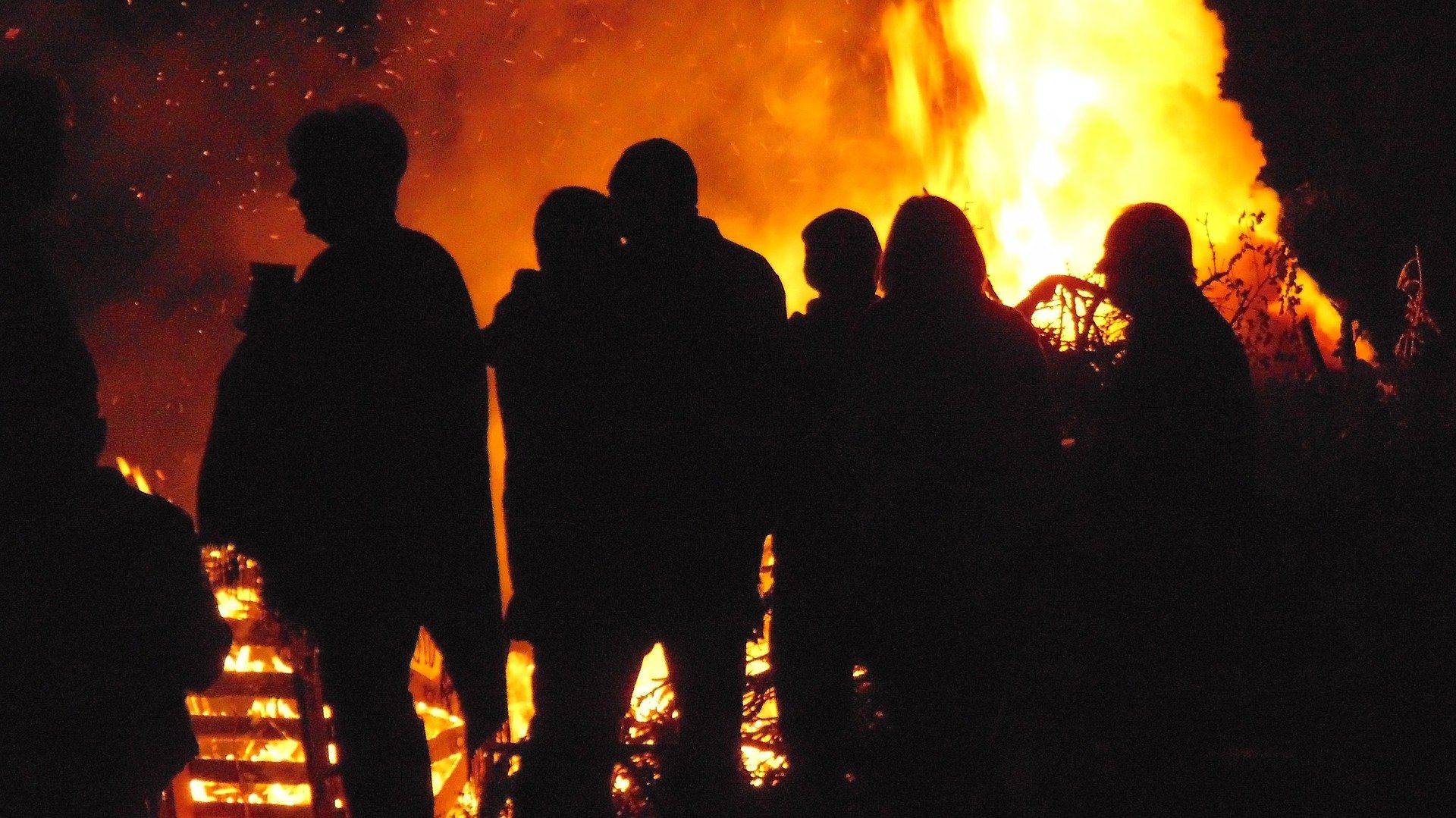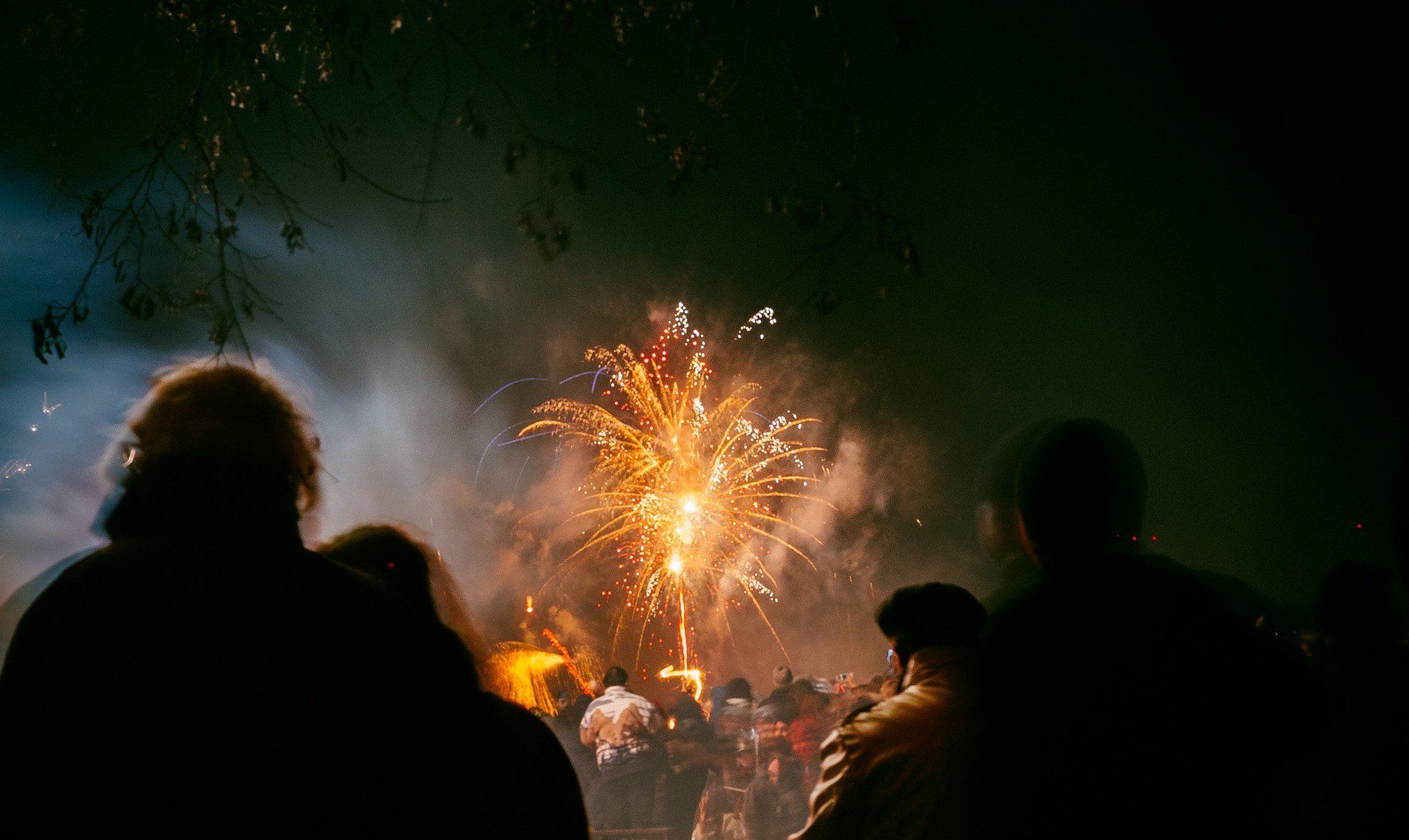
In the town of Lewes every year, on 5 November, there is an unusual custom. Hundreds of people process through the town for several hours from 5.30pm, many carrying burning torches and arrayed in fancy dress or other regalia such as horned head masks. Seven bonfire societies light up their own bonfire and fireworks displays around the town. Spectaculars and parades continue into the night. These include men leaping over flaming tar barrels. The event is attended by thousands of people and an atmosphere of carnival prevails. Among the objects in the procession are the effigies to be burnt. Guy Fawkes is represented, as usual, but it is reported that the effigies of unpopular locals, including councillors opposed to the displays, have also been consumed by the flames. One bonfire society actually burns an image of a previous pope, and banners proclaiming ‘No popery’ are unfurled. For the most this ‘anti-popery’ does not seem to proceed from religious intolerance, but from an unthinking adherence to tradition.
Three important events
The roots of this tradition are to be found in Protestant Reformation history. The Lewes celebration originally recalled three important events: the foiling of the Gunpowder Plot, the martyrdom of seventeen Lewes people by fire in the reign of Queen Mary Tudor, and the landing of William of Orange at Torbay on 5 November 1688. The Orange Order actually has a branch of its society in Lewes today, and at least one Nonconformist chapel has a ‘bonfire service’ on a nearby Sunday when they recall the meaning behind the traditions. What are we to make of this jamboree in which a repeated tradition is largely divorced from its historical roots? Similar happenings take place on other occasions and in other contexts, notably in Northern Ireland. There will always be groups who believe that they have the right to celebrate their victories in full view of their communities.

Ten faithful martyrs
That Lewes has a distinguished Reformation history is undoubted. Foxe’s Book of Martyrs records that in 1557, ‘There were put in one fire the 22nd day of June ten faithful servants of God.’ Four of these were women. J. C. Ryle, in his masterly essay ‘Why were our Reformers burned?’, demonstrates that the main reason for the Reformers’ martyrdoms was that they refused to accept Rome’s doctrine of the real presence of the body and blood of Christ in the bread and wine of the Lord’s Supper. They saw clearly that this heresy denied the sufficiency of Christ’s atoning death at Calvary. Christ now lives as a glorified Saviour to apply the blessings of redemption, not to pay the price for his people’s sins all over again in the so-called ‘sacrifice of the mass’. But surely for many of us it is with a chill of horror that we read of this kind of memorial to these noble martyrs. It is not only Roman Catholics in Lewes who must have an anxious evening in their homes when thousands of milling people flock to displays which include papal image-burning by ‘bonfire boys’, and other unpleasant trappings. Every decent-minded citizen, who knows the power of seemingly harmless but in actual fact violent symbols which are endlessly presented to the mind, will wonder what the next development could be. True Protestants ought to shudder at the sight of human effigies in flames when they recall what many true believers had to endure and what appalling wickedness lit those sixteenth-century fires.
Winsome evangelism
The burning of ‘the guy’ may now be sanitized by universal, unthinking custom, but the burning of the known effigy of any leader, religious or civic, is an act of irresponsibility. Let the pope burn his enemies, if he must, but let Christians love their foes. Let them steer a wide berth from anything that smacks of deadly (even if symbolic) tit-for-tat. What our Roman Catholic, Muslim, ‘Protestant’ and irreligious fellow-countrymen need is not displays of ritual historic drum beating, but the preaching of the glorious gospel of Jesus Christ. We should aim to do this with winsomeness, attended by no other scandal than the scandal of the cross.










